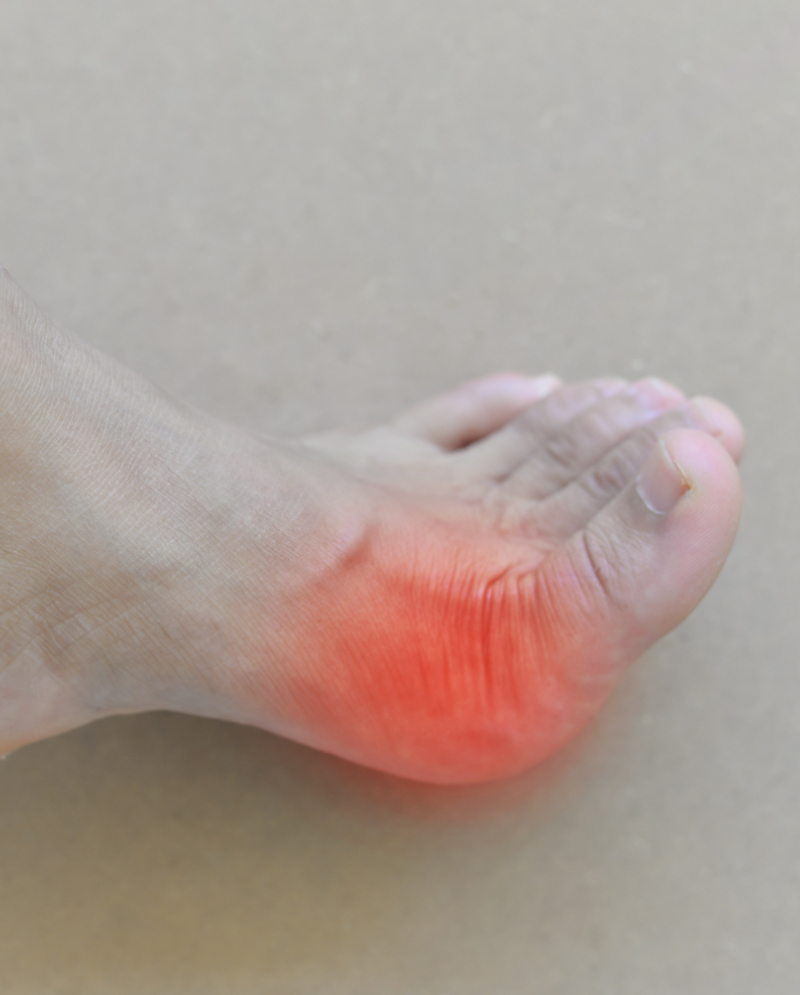Gout is a common type of arthritis that causes intense pain, swelling, and stiffness in the joints. It usually affects the joint at the base of the big toe, known as the metatarsophalangeal joint. Its main cause is the presence of too much uric acid in the body. Gout attacks can come on quickly and may keep recurring over time. This ongoing resurgence can slowly harm tissue in the inflammation area and can be extremely painful. Hypertension, cardiovascular conditions, and obesity are risk factors for this disease. If you are experiencing symptoms of this condition, scheduling an appointment to speak with a specialist at Beyond Podiatry may be the best option.
What Causes Gout?
Hyperuricemia, an excess of uric acid in the blood, is the leading cause of gout. The body produces uric acid during the breakdown of purines. These are chemical compounds found in high amounts in certain foods such as meat, poultry, and seafood. Typically, uric acid is dissolved in the blood and excreted from the body in urine via the kidneys. If a person produces too much uric acid or does not excrete enough, it can build up and form needle-like crystals. These trigger inflammation and pain in the joints and surrounding tissue.

Signs and Symptoms of Gout
This condition most commonly affects joints in your lower extremities, such as your feet and ankles, where blood flow is limited and uric acid can easily form crystals. Pain and discomfort associated with this condition can become so severe that you have difficulty walking and standing. During a gout flare-up, you may experience:
- Joint swelling
- Redness and inflammation
- Intense joint pain
- Limited range of motion
Treatment Options
Treating gout includes a multifaceted approach that involves lessening your pain level while simultaneously working to prevent future flare-ups. Our treatment options include:
- Nonsteroidal anti-inflammatory drugs (NSAIDs)
- Prescription pain medications
- Corticosteroid pills or injections
- Dietary and nutrition counseling
